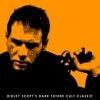-
Posts
2,628 -
Joined
-
Days Won
103
Reputation Activity
-
 Sigaba got a reaction from londonrain9 in Grad. School Supplies?
Sigaba got a reaction from londonrain9 in Grad. School Supplies?
FWIW, I recommend:
A set of blank correspondence cards from Crane and postage to send thank you notes.
Purell and lots of it.
Your sense of humor--most notably the ability to laugh at yourself.
At least one Moleskine notebook as a journal for venting.
A +1 rule for taking extra sweaters/jackets with you to campus so that you can make the transition from the outdoors to the often frigid temperatures of a classroom or a library without breaking stride.
Using the student discount rates for academic journals specific to your field of study, as well as to popular magazines of your choice that can provide moments for intelligent procrastination.
Waterproof shoes.
A television and DVD player.
A pair of noise cancelling headphones.
Splurging on a single item that will really provide you a measure of comfort and luxury, even if that item temporarily stretches your budget. The item can be a pair of shoes, the backpack you've always wanted, a nice outfit, a Gore-Tex jacket, a nifty pair of sunglasses, an air purifier, a portable A/C unit, or some minor consumer electronic device. The years ahead are going to have some trying and stressful moments. And in those moments, it will be the small things that help you rally in the face of a set back.
A reliable compact LED flashlight if not also a Fox 40 whistle.
A hard copy of the Chicago Manual of Style. (If applicable)
Hard copies of all of your software apps and computer OS.
Enough plastic hangers for all of your clothes. (The time you save not having to fold laundry will pay off in the long run.)
HTH.
-
 Sigaba got a reaction from О'Брайен in LOR for forgettable student
Sigaba got a reaction from О'Брайен in LOR for forgettable student
I very strongly disagree with this post. An educator's primary mission is to enable students so that they can achieve goals they define.
-
 Sigaba got a reaction from commcomm in Unfairness and dishonesty among faculty and administration. What do I do here?
Sigaba got a reaction from commcomm in Unfairness and dishonesty among faculty and administration. What do I do here?
Bluntly, I think that you need to take a look at your attitude and how it may impact the outcome of this process.
You are going to be discussing a very complicated and controversial issue with people who have power over you. I think it is in your best interest to take your emotions out of the equation. Among the emotions to control are your feelings of victimization, self-righteousness, and anger. It does not matter if you and your cohort are in the right and they are in the wrong. If you communicate with the tone you display in the OP you will not prevail.
If you decide to continue with this process,
Identify the issues you want to address.
Figure out the outcomes you'd prefer.
Figure out the outcomes that are possible.
And then figure out what you can do to close the gap between what you want and what you can get.
That is, manage your expectations. You may want heads on a platter but what may happen is that students will get nothing more than an opportunity to retake the class.
Do not say anything about the individuals you're dealing with either on line or to anyone else that you're not willing to say it directly to those people. If you need to vent, and I suggest you don't, do it with pen and pencil or in an encrypted file. Right now, your emotions are getting the better of you. If you have a talk with people higher up in the food chain with the tone you used in the OP, you are going to undermine your chances for a sustainable resolution to your issue. Do not, under any circumstances, make anything that sounds like a threat, especially if you do not have the power to carry out that threat. If you're set on tearing the temple down, then do it. But do not talk about it. (Make no mistake, I think that this would be an incredibly self destructive act on your part.)
Concurrently, please do take a long hard look at yourself in the mirror. Bluntly, some of what you say you did does not track with who you say you are. You need to figure out these inconsistences before you go into a meeting and say/do something that undermines your credibility and forfeits the high ground. For example, somewhere along the line, you made some pragmatic decisions. But now you're talking about principle. What prompted the transition?
And there are other questions you might consider. Why are you fighting this fight? (It is unclear if you got a poor mark in the second class.) Who are you trying to help? Did they ask you? Are you helping them the way they've asked you? Or are you imposing your solutions on their problems and thereby complicating an already difficult situation? Whose interests and what priorities are driving you right now? Do you want a sustainable solution or do you want revenge? What are you going to do if you can't get either?)
I understand that some of my comments may not be what you expected. You strike me as someone who has what I call a "crusader's mentality." IMO, that isn't such a bad trait to have. However, I urge you to understand the differences between giants and windmills before you grab a lance and charge down the hill. And also understand that being angry can get in the way of being effective. (FWIW, as a hot head, I often say to myself: [sigaba], do you want to be mad or do you want to get the problem solved--because you cannot do both? When I decide to get the problem solved, things tend to turn out a lot better for me.)
HTH.
-
 Sigaba reacted to annieca in Sh^t People Say About (History) Graduate School
Sigaba reacted to annieca in Sh^t People Say About (History) Graduate School
Actual conversation one of my professors had about me:
Professor A: Student wants to go and get a dual masters.
Professor B: Oh, that's nice. How old is she?
Professor A: She'll be 20 when starting her programs.
Professor B: That's too young!
Professor A: She is one of those students born at 30. I think she can handle it.
^^ I hate it when professors, parents, family, etc. tell me I can't do something or I can't handle it. If I did high school and college in 3 years each, I think I can handle this. Go worry about your own research (or lack thereof).
-
 Sigaba reacted to Caganer in Language Exams
Sigaba reacted to Caganer in Language Exams
You're blowing this out of proportion
My school also allows a bilingual dictionary for proficiency exams but like StrangeLight said, its best to contact the DGS or the department in charge of administering the exam. At my school the exam is a scholarly text of one or two pages that has to be translated. I've seen the exam for Spanish and if you know Portuguese well enough, you should be able to pass. However, should passing be your goal? Since you're a Latin Americanist, knowing Spanish well will help immensely in the future. If your interests shift at all during your program there is a good chance that you're going to be using Spanish. It will also make you a stronger candidate for jobs in the future. (And normally PhD programs in LA history require Portuguese, Spanish, and French, no?)
Also, I have noticed that the culture of some Latin American departments are Hispanocentric (I think I am inventing this term but you get the gist). That is, Portuguese speakers are usually outnumbered and often end up communicating in Spanish, guests are often invited to give lectures in Spanish and rarely are lectures held solely in Portuguese (yet I'm sure this depends on the department). Knowing how to communicate in basic Spanish will allow you to take advantage of more opportunities in the future.
I bet if you took an accelerated Spanish course over the summer and put some Shakira and Calle 13 on your ipod you would pick it up in no time.
-
 Sigaba reacted to StrangeLight in Language Exams
Sigaba reacted to StrangeLight in Language Exams
my program allows a bilingual dictionary for our translation exams.
it will depend on how your program does it. if you already know where you're headed, you should look at the department's graduate handbook to see if it details how the translation exams occur. you could also consider contacting the DGS of your program and asking outright because you'd like to prepare for the exam over the summer.
-
 Sigaba reacted to New England Nat in Language Exams
Sigaba reacted to New England Nat in Language Exams
My program generally requires the translation of two passages, one with a bilingual dictionary and one without. As it is adminsitered and graded in the history department how hard or difficult it is can really be drastically different from one exam to another. Some times everyone will fail a given language exam and other times everyone will pass it. A real red flag can be if the person sitting the exam is a native speaker of the language, this is especially true when they have to reach out to other departments to find someone who speaks the language being tested.
I wouldn't say it is being blown out of proportion, because the language exam can be a real anchor around the neck of a candidate. Don't try and worry about it too much, but do prepare for it.
-
 Sigaba reacted to TMP in Decisions, Decisions
Sigaba reacted to TMP in Decisions, Decisions
I should really ask, I don't know who the person is, but why are some of these posts getting "thumbs down", not just my own? Anyone who reads through this, whether have offers or not, should be happy for all of us in having this privilege to make decisions. If you don't like what we are saying, why bother reading? (there a purpose to why Goldie created a separate thread) Even if you just have one choice, you should read what we are thinking as your program will expect you to ask questions anyway. You want to make an informed decision, even if you already know where you're going. You need to be on the same page as your POI and the department. The last thing you want to do as you finish up your first year is find out that the summer support is not for first year students, or you MUST TA two courses in the fall, or whatever. Clear expectations will set you up well for your first year and henceforth.
And if someone didn't like my thoughts on the job market, then, well, I really don't know what to think as that is an important factor to consider. I should think long-term, not just the short term (such as program requirements, language exams, lifestyle). I am making a huge investment of your time, money and energy to obtain this degree and I might as well get something out of it, may it be a TT job or an adjunct position or something in the government. I want an adviser who will get the job for me, not just someone who simply wants me to come to their program and attach their name to my work. I want a department that will prepare me for the job market out there for historians so that other graduate students and I know what the heck we are doing. That's one of StrangeLight's themes for this year in her advice- she's been sitting on search committees and is telling us what really goes on there. Listen to her and I am listening to her and my former undergraduate professors who have been conducting a lot of SCs in the last few years. I'm listening to them. I want to be that lucky candidate. Seven years may be a long way but time really flies.
And, yes, I know I'm being a little obnoxious with that question of "whatever will I do" but you don't know the full story beyond what you've read for this year and on my signature. There are a lot of complicated things that I don't want to post in a public forum. PM me if you want it and I will tell you the truth. Don't judge the book by its cover.
-
 Sigaba got a reaction from kpietromica in Grad. School Supplies?
Sigaba got a reaction from kpietromica in Grad. School Supplies?
FWIW, I recommend:
A set of blank correspondence cards from Crane and postage to send thank you notes.
Purell and lots of it.
Your sense of humor--most notably the ability to laugh at yourself.
At least one Moleskine notebook as a journal for venting.
A +1 rule for taking extra sweaters/jackets with you to campus so that you can make the transition from the outdoors to the often frigid temperatures of a classroom or a library without breaking stride.
Using the student discount rates for academic journals specific to your field of study, as well as to popular magazines of your choice that can provide moments for intelligent procrastination.
Waterproof shoes.
A television and DVD player.
A pair of noise cancelling headphones.
Splurging on a single item that will really provide you a measure of comfort and luxury, even if that item temporarily stretches your budget. The item can be a pair of shoes, the backpack you've always wanted, a nice outfit, a Gore-Tex jacket, a nifty pair of sunglasses, an air purifier, a portable A/C unit, or some minor consumer electronic device. The years ahead are going to have some trying and stressful moments. And in those moments, it will be the small things that help you rally in the face of a set back.
A reliable compact LED flashlight if not also a Fox 40 whistle.
A hard copy of the Chicago Manual of Style. (If applicable)
Hard copies of all of your software apps and computer OS.
Enough plastic hangers for all of your clothes. (The time you save not having to fold laundry will pay off in the long run.)
HTH.
-
 Sigaba got a reaction from pinkrobot in Another grad student with unsupportive relatives
Sigaba got a reaction from pinkrobot in Another grad student with unsupportive relatives
I'm going to throw cents worth of personal opinion to those offering comments about Jasmineflower's family members.
As you go through graduate school, you may find that the ability to offer support to a person without attacking that person's antagonists is a very useful skill.
In this particular case, Jassmineflower can say what she wants about her family because it is her family. She knows intimately the dynamics of the situation she's describing. As outsiders, we do not. If one really want to support someone, one needs to avoid the "Yeah, your parents are asspipes, so ef them and tell them I said so" approach. Those kinds of attacks risk perpetuating cycles of antagonism. Moreover, they place one in jeapordy of saying the wrong thing at the wrong time and getting tuned out.
IMO/IME, diagnostic questions like those posed by anthroDork are absolutely critical in situations like the one described in the OP. There are places in America--and the rest of the world--where pursuing an advanced degree runs counter to long standing conventions, practices, and beliefs. One can grandstand and label those values all one likes, but at what cost?
Right now, Rush Limbaugh has, yet again, dragged the discussion of vitally important issues into the sewer. He achieved this objective by imposing his values on someone he's never met. I'm not suggesting that any of the comments in this thread are that out of line. I am saying that as intellectuals we need to do the best we can to understand people everyone in their own terms, not ours, and to help them solve their problems in ways that will work for them in the long term.
In regards to the issue presented in the OP. I have direct experience with a similar dynamic. While the desire to prove a critic wrong--especially when the person is a family member--can be a powerful source of motivation. Even so, I think it is one's best self interest to monitor constantly one's emotional state. If one lets anger, bitterness, and other associated emotions have their way, intellectual achievement that should spark a sense of joy will be irrevocably tarnished. The best revenge is living well.
-
 Sigaba got a reaction from R Deckard in accepted to program and then offer withdrawn?
Sigaba got a reaction from R Deckard in accepted to program and then offer withdrawn?
I am going to stray from my lane and toss in my two cents.
I regret that you're in this position. I think there are too many instances where these types of reversals happen, and what ever the reason for these mistakes, they are not fair to those applicants who are on the receiving end.
That being said, I think that a little bit of (jaded) pragmatism may provide a different perspective. Even if your assumption is correct, what then? Do you have the resources and time to hire an attorney and to chase the bouncing ball down every rabbit hole?
Let's say you prevail, what then? You would be working with a POI in a department in which someone bungled something somewhere. You would be surrounded by other professors who are as disinterested in your work as you are in theirs. Are they going to view you any differently for standing up for "what is right"? Or are you going to be viewed as "that guy/girl" who is going to be a litigious PITA when he or she gets a bad bounce? Would working in this environment be the best for your long term interests and goals?
On another BB, there are a couple of threads by graduate students who decided to fight, were in the right, and successfully vindicated themselves at the cost of their time and their economic and psychological well being. A big difference between them and you is that they had no choice--they had so much skin in the game that they couldn't pick up their chips and head to a different table.
Are you absolutely in a position where you cannot walk away? Is this a moment where alloplasticity trumps autoplastic solutions?
MOO, is that you should accept the fact that you're path has changed and to embrace that change. Look forward with hopeful expectations, not backwards. Use this experience in the future to limit your exposure to these kinds of screw ups and to make sure that you don't put someone else in such an uncomfortable position.
HTH.
-
 Sigaba reacted to Seanish in Fall 2012 Applicant Chit Chat
Sigaba reacted to Seanish in Fall 2012 Applicant Chit Chat
Some form of results seem to be in for all of my schools. I've only heard only bad news or nothing. Help me Obi-Wan Kenobi, you're my only hope.
-
 Sigaba got a reaction from wordshadow in Fit vs. Geography
Sigaba got a reaction from wordshadow in Fit vs. Geography
You are competing against peers who will let nothing stand in the way of their maximizing their potential and their opportunities. How badly do you want to be the best scholar you can be? What is the likelihood that, at some point, your career progression will require you to be a long ways away from family and friends?
-
 Sigaba got a reaction from thereal19 in Fit vs. Geography
Sigaba got a reaction from thereal19 in Fit vs. Geography
You are competing against peers who will let nothing stand in the way of their maximizing their potential and their opportunities. How badly do you want to be the best scholar you can be? What is the likelihood that, at some point, your career progression will require you to be a long ways away from family and friends?
-
 Sigaba got a reaction from JSmoove in Another grad student with unsupportive relatives
Sigaba got a reaction from JSmoove in Another grad student with unsupportive relatives
I'm going to throw cents worth of personal opinion to those offering comments about Jasmineflower's family members.
As you go through graduate school, you may find that the ability to offer support to a person without attacking that person's antagonists is a very useful skill.
In this particular case, Jassmineflower can say what she wants about her family because it is her family. She knows intimately the dynamics of the situation she's describing. As outsiders, we do not. If one really want to support someone, one needs to avoid the "Yeah, your parents are asspipes, so ef them and tell them I said so" approach. Those kinds of attacks risk perpetuating cycles of antagonism. Moreover, they place one in jeapordy of saying the wrong thing at the wrong time and getting tuned out.
IMO/IME, diagnostic questions like those posed by anthroDork are absolutely critical in situations like the one described in the OP. There are places in America--and the rest of the world--where pursuing an advanced degree runs counter to long standing conventions, practices, and beliefs. One can grandstand and label those values all one likes, but at what cost?
Right now, Rush Limbaugh has, yet again, dragged the discussion of vitally important issues into the sewer. He achieved this objective by imposing his values on someone he's never met. I'm not suggesting that any of the comments in this thread are that out of line. I am saying that as intellectuals we need to do the best we can to understand people everyone in their own terms, not ours, and to help them solve their problems in ways that will work for them in the long term.
In regards to the issue presented in the OP. I have direct experience with a similar dynamic. While the desire to prove a critic wrong--especially when the person is a family member--can be a powerful source of motivation. Even so, I think it is one's best self interest to monitor constantly one's emotional state. If one lets anger, bitterness, and other associated emotions have their way, intellectual achievement that should spark a sense of joy will be irrevocably tarnished. The best revenge is living well.
-
 Sigaba reacted to MediaMom in Another grad student with unsupportive relatives
Sigaba reacted to MediaMom in Another grad student with unsupportive relatives
There is probably a lot more to this than what you've posted here, but what I'm reading is that regardless of your status--student, employed, whatever--your family will only view you as worthy of their love and acknowledgement if you make "enough" money, whatever that means. Your family sounds like a bunch of shallow, mean spirited, useless asses. Just because you share their DNA doesn't mean you have to share their BS. I would just go on living my life with my friends and let them do whatever it is people like that do. But that's just me.
Oh, and the cousin can take her wedding registry and shove it. I wouldn't go.
-

-
 Sigaba got a reaction from kazoo in Going crazy.
Sigaba got a reaction from kazoo in Going crazy.
Keep it together, everyone. I understand that you're under a lot of pressure and the anxiety is tremendous. But keep it together.
The stress you're experiencing now is nothing compared to what you'll encounter when a professor decides to use you as a chew toy or when you're taking your qualifying examinations or when you're writing your dissertation.
Use this moment to prepare yourself for the challenges that await.
-
 Sigaba got a reaction from iamincontrolhere-haig in Fall 2012 Applicant results
Sigaba got a reaction from iamincontrolhere-haig in Fall 2012 Applicant results
Here's a bump to request that those of you who have been admitted and rejected to do consider the value of communicating with programs to which you applied for a debriefing. That is, ask why you got in or why you didn't.
Then, to the extent you can bear, share the results.
This information might allow future applicants to focus in on the process and to escape avoidable mistakes.
Also, the process of waiting things out can provide one with additional insight in regards to "lessons learned."
I understand that these requests are asking a lot out of many of you. Rejection can bring more agony than acceptance brings joy. However, the future of professional academic history rests in your hands. There is no better time than the present than to start the process of supporting those who will follow in your footsteps.
Unfortunately, Brian Bond, Michael Howard, and John J. Mearsheimer have documented that Liddell-Hart was something of a fraud. If America is to produce another great military historian in the years to come, she (or he) will have to find a different path.
-
 Sigaba got a reaction from once in Need Advice!
Sigaba got a reaction from once in Need Advice!
Before you read the balance of my post, I believe three disclosures are in order. First, the UCSB campus and surrounding areas are among my favorite places. Second, while I dream of traveling to Istanbul, my own political views would make travelling to Turkey at this point in time problematic. Third, given the state of international affairs, I would be very reluctant to travel to that region of the world for an extended period of time. I think a number of "push comes to shove" opportunities will arise in the near future. And if the shoving starts I would want to be on the other side of the planet. YMMV.
Now, on to the particulars.
MOO, the information in this paragraph should drive your go/no go matrix.
If you do go to Turkey and end up needing to go through the application process, you will probably be able to get a high level of support.
On the other hand, your destination and the work you will be doing will not directly help you get any closer to your objective. So while you're in Turkey teaching English, people who want to do what do will be developing their skills to compete in graduate school and beyond. Can you afford to take a year off against this type of competition?
Also, while some have correctly pointed out that graduate school will always be there, an offer from UCSB may not. The State of California is broke, the governor is committed politically to cutting the budget, and in-state tuition costs for the UC system are on the rise. Meanwhile, the cost of living in California is heading ever upward. So while you may have the opportunity to live and to work in Turkey, that opportunity may have some costs on the back end of your journey.
So my two cents are these. If you get into UCSB and are offered financial support, accept the offer, even if you're told that you can defer for a year, and even if you get it in writing. If you don't get into UCSB, but get into either of the two M.A. programs, consider going to Turkey. (Here's why. If you earn a M.A. from program A and then become a doctoral student at program B, it is likely that the Powers That Be at program B will have you jump through many of the same hoops you navigated at program A. In the long run, this repitiion may do you good but maybe much less fun than going to Turkey.)
HTH.
-
 Sigaba got a reaction from CageFree in Need Advice!
Sigaba got a reaction from CageFree in Need Advice!
Before you read the balance of my post, I believe three disclosures are in order. First, the UCSB campus and surrounding areas are among my favorite places. Second, while I dream of traveling to Istanbul, my own political views would make travelling to Turkey at this point in time problematic. Third, given the state of international affairs, I would be very reluctant to travel to that region of the world for an extended period of time. I think a number of "push comes to shove" opportunities will arise in the near future. And if the shoving starts I would want to be on the other side of the planet. YMMV.
Now, on to the particulars.
MOO, the information in this paragraph should drive your go/no go matrix.
If you do go to Turkey and end up needing to go through the application process, you will probably be able to get a high level of support.
On the other hand, your destination and the work you will be doing will not directly help you get any closer to your objective. So while you're in Turkey teaching English, people who want to do what do will be developing their skills to compete in graduate school and beyond. Can you afford to take a year off against this type of competition?
Also, while some have correctly pointed out that graduate school will always be there, an offer from UCSB may not. The State of California is broke, the governor is committed politically to cutting the budget, and in-state tuition costs for the UC system are on the rise. Meanwhile, the cost of living in California is heading ever upward. So while you may have the opportunity to live and to work in Turkey, that opportunity may have some costs on the back end of your journey.
So my two cents are these. If you get into UCSB and are offered financial support, accept the offer, even if you're told that you can defer for a year, and even if you get it in writing. If you don't get into UCSB, but get into either of the two M.A. programs, consider going to Turkey. (Here's why. If you earn a M.A. from program A and then become a doctoral student at program B, it is likely that the Powers That Be at program B will have you jump through many of the same hoops you navigated at program A. In the long run, this repitiion may do you good but maybe much less fun than going to Turkey.)
HTH.
-
 Sigaba got a reaction from rising_star in How important is it that you get along with your adviser?
Sigaba got a reaction from rising_star in How important is it that you get along with your adviser?
IME, what matters most is rapport with one's professors--especially one's advisor. If that rapport isn't there, a professor can impact your development negatively without even trying. Here's an example. While taking a course in early American history, I had a newly minted assistant professor who, for personal reasons, hated the navy. "Why would anyone want to study naval history?" she sneered at me a couple of times.
Because of her mindset, she did not bother to point me towards important works that she had most likely come across during her time as a doctoral student. While I don't think she deliberately tried to screw me over, I do think the absence of rapport played a role in her not doing what other professors have done for me--direct me to works they think might be important.
Example two. I switched schools because I wasn't happy with the level of instruction I was getting (and for other reasons). I ended up with an advisor who, unknown to me and my classmates until much later, had a well deserved reputation for being "selfish." It was only later, after a comparing notes with fellow students, and receiving some affirming nods from other professors, that this selfishness manifested in the negotiations over reading lists for qualifying exams. This is to say that he would direct his graduate students to books he'd recently read at the expense of works that we needed to read. Consequently, while we were doing easter egg hunts for the works he recommended, we would sometimes, if we were lucky, stumble upon more important works. More often, we'd made these discoveries as we began doing the historiographical research for our dissertations and/or supplemental research in support of our responsibilities as T.A.s.
The bottom line is that many graduate students do work that is so specialized that one is responsible to find answers for unknown questions.
Make no mistake that the operative word here is responsibility. It is ultimately a graduate student's responsibility to figure out the dynamics of his/her relationships with professors, to read what one needs to read, and to learn what one needs to learn. So before one makes a blanket decision that relationships with professors aren't that important, remember that they, because of their superior expertise in a domain of knowledge, can open and close doors that others cannot even see.
-
 Sigaba got a reaction from anonyouknow in New year, new ideas on how to deal with PI and lab competition
Sigaba got a reaction from anonyouknow in New year, new ideas on how to deal with PI and lab competition
Gellert--
FWIW, where I am going with this is a concern over the blurring of lines between the clinical application of psychology and the popular understanding of psychological terms. A mentor of mine, a training psychoanalyst, believed that this blurring contributes to a sensibility in which members of the general public do not professional clinicians take seriously and seek to paint as pathological the behavior of others.
While you, JM, and others may not bat an eye when such colloquialisms are used, I agree with those who argue that intellectuals should re-enforce lines of demarcation between the popular application of a concept and a more precise meaning.
As for my comparison, I respectfully disagree that they are not at all the same thing. MOO, one of the many reasons why American political discourse is so toxic is because too many people--especially those on the right--refuse to familiarize themselves with the work political scientists and historians have done to differentiate left of center political thought. They instead go with colloquialisms and turn to Red baiting.
Just my two cents.
-
 Sigaba got a reaction from awvish in New year, new ideas on how to deal with PI and lab competition
Sigaba got a reaction from awvish in New year, new ideas on how to deal with PI and lab competition
JM--
Does the fact that American political right colloquially equates progressivism, socialism, and communism mean that the current president and his supporters are communists because his critics say so?
-
 Sigaba got a reaction from awvish in New year, new ideas on how to deal with PI and lab competition
Sigaba got a reaction from awvish in New year, new ideas on how to deal with PI and lab competition
In addition to the guidance you've received from other members of this BB, I recommend that you avoid forays into psychology. First, the behavior you describe is not "passive aggressive" according to the criteria set forth in DSM-IV-TR. Second, you are not in a clinician. Consequently, you are not in a position to define why your PoI is behaving in the manner you describe and your efforts to do so in psychological terms undermines the legitimacy of your argument. (If you think this point is trivial, consider the way men have used issues of mental health to dominate and to control women. Now ask yourself: Do you want to play a part in this dynamic in any way?)
Additionally, I strongly recommend that in your subsequent discussions of this person, you only allege publicly what you can prove. (And by prove, I mean with documents and first hand accounts of conversations you witnessed.) Keep what you know (or think you know) in your back pocket. Those events are for other people to tell/document. You do not want to hinge your credibility upon others. Strive to build an argument that can stand on its own. Leave it to others to determine that the PoI's behavior towards you falls into a broader pattern.
Penultimately, consider the utility of rereading isobel_a's contribution. To the extent possible, take a "step back" from your situation and evaluate it from a disinterested viewpoint. IME, it is not uncommon for a group of graduate students to compare notes and conclude that a PoI is a this or a that and not go to the person and try to talk it out in private.
And finally, it bears repeating: document, document, document. This guidance includes documenting your state of mind.













